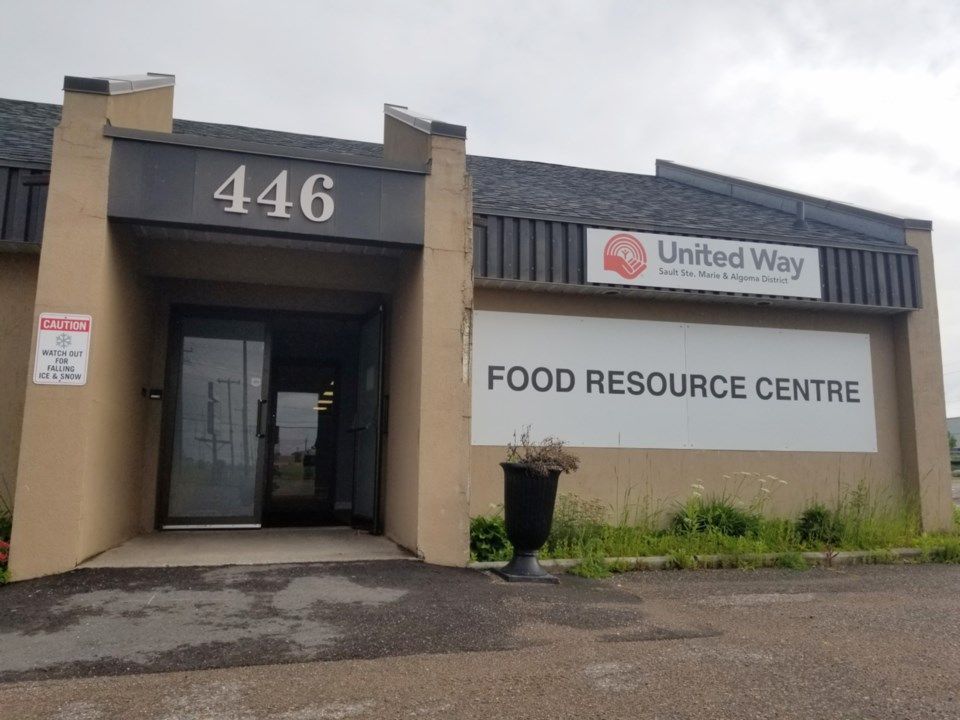Home » Harvest Algoma to receive financial support from partners
Harvest Algoma to receive financial support from partners

The Sault Ste. Marie Innovation Centre will go ahead with a takeover of the Harvest Algoma program with the financial support of the City of Sault Ste. Marie and a three-year funding commitment from Algoma Steel.
The Harvest Algoma program was put in place by United Way Sault Ste. Marie & Algoma District in 2017 as a way to address food insecurity in the city. Earlier this year, United Way began looking for a new home for the program, eventually landing on SSMIC and its Rural Agri-Innovation Network (RAIN) initiative.
On Monday, Sault Ste. Marie City Council was asked to commit $180,000 over three years to help the program transform from a charitable program under United Way to a self-sustainable social enterprise under RAIN — but not before the city's largest employer made a surprise announcement.
At the outset of tonight's meeting, Algoma Steel committed an additional $120,000 over three years toward the future of Harvest Algoma.
John Naccarato, vice president strategy and chief legal officer for Algoma Steel, announced the commitment at the opening of Monday's meeting, saying food security touches everybody.
“We recognize we are partners in our community," Naccarato told council."We have to help individuals, we have to provide a foundation for people to succeed and it’s our pleasure to be able to do this."
Speaking to SooToday, Naccarato said the funding doesn't come with any conditions.
“It’s really designed so they are stable with a sustainable future and some breathing room for them to figure it out,” he said.
Naccarato noted Algoma Steel was a founding member of United Way Sault Ste. Marie & Algoma District.
Later in the meeting, city council unanimously voted to support the new direction for Harvest Algoma with a $60,000 commitment per year over three years, for a total contribution of $180,000. That funding will be pulled from the city’s Community Development Fund, which holds a current value of over one million dollars.
David Thompson, director of
RAIN, said there is a lot to do between now and the expected Oct. 3 takeover date. His first priority is securing funding commitments from some of the community partners that have been identified as benefiting from Harvest Algoma and can contribute to its future.
After the close date, the next priority is getting some trucks on the road to ship food up to the Sault from Second Harvest in southern Ontario. Harvest Algoma had been doing just that, but its warehouse floor has mostly been empty for months in part due to the costs of trucking and also because of the program's uncertain future.
“What we are really hoping to do is bring some trucks of food in as soon as possible because certainly the need is great out there," said Thompson.
The current skeleton crew that has been operating Harvest Algoma will be retained, said Thompson, and some additional staff will be added.
"They are the glue that is really making that place work with the volunteers," Thompson said of the current staff. "It’s important for us to maintain them."
Harvest Algoma supports as many as 70 organizations and agencies in the city to help address food insecurity. One of those agencies, SOYA, was out in force to cheer on the decision by council.
“This is good and our city needs good news," said SOYA founder Connie Raynor-Elliott, referring to both council's decision and the support from Algoma Steel.
Last Saturday, SOYA provided hot lunches to 258 people from its Gore Street depot, with much of the food provided by Harvest Algoma.
“They're seniors, they’re new Canadians, they’re students. It’s like: 'Pay your rent or eat.' That’s wrong," said Raynor-Elliott of SOYA's clientele, which they refer to as friends.
Last month, it looked like the planned takeover of Harvest Algoma wouldn't go ahead due to lack of support by community partners.
On Monday, United Way's president of the board of directors, David Gearing, said he is looking forward to his organization going from operator of Harvest Algoma to a funder.
“It was my five-year project. I was here when we bought the place and now I am here when we transfer it over," said Gearing. “We never decided to be in the food business, we just knew it was something that had to be done for the community but we could only foot the bill for so long."
"It’s still a project that we believe in, but we would rather be a donor than an operator,” he added.
Now that it will not be funding the entire operation, Gearing said it will allow United Way to concentrate on funding other initiatives in the community.
Prior to putting the city's funding commitment to a vote, Mayor Matthew Shoemaker said it isn't often that council can directly help with social problems that are usually under the auspices of the provincial Ministry of Health or Ministry of Children, Community and Social Services.
“For us to commit to its ongoing viability, to stabilize it over the next three years and see it develop into a self-sustaining or a sustainable model that is not necessarily dependent on municipal dollars going forward — it makes absolute sense to do so," said Shoemaker.
_
View the original article on SooToday
here.
Header image credit to James Hopkin, 2019.
SSMIC
https://ssmic.com
The Sault Ste. Marie Innovation Centre (SSMIC) is a non-profit organization that functions as a catalyst for economic development and diversification in the science knowledge-based sectors SSMIC has experts in business development, agriculture, IT, science and technology dedicated to helping you find better solutions. We exist to drive business growth, facilitate research and commercialize it’s technology through partnerships, expert advice, community development, outreach and sector development activities


